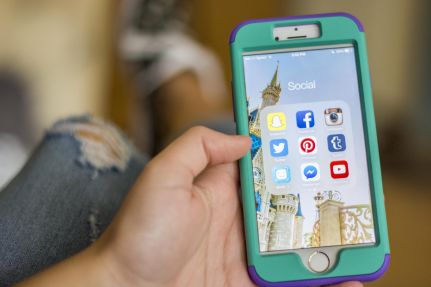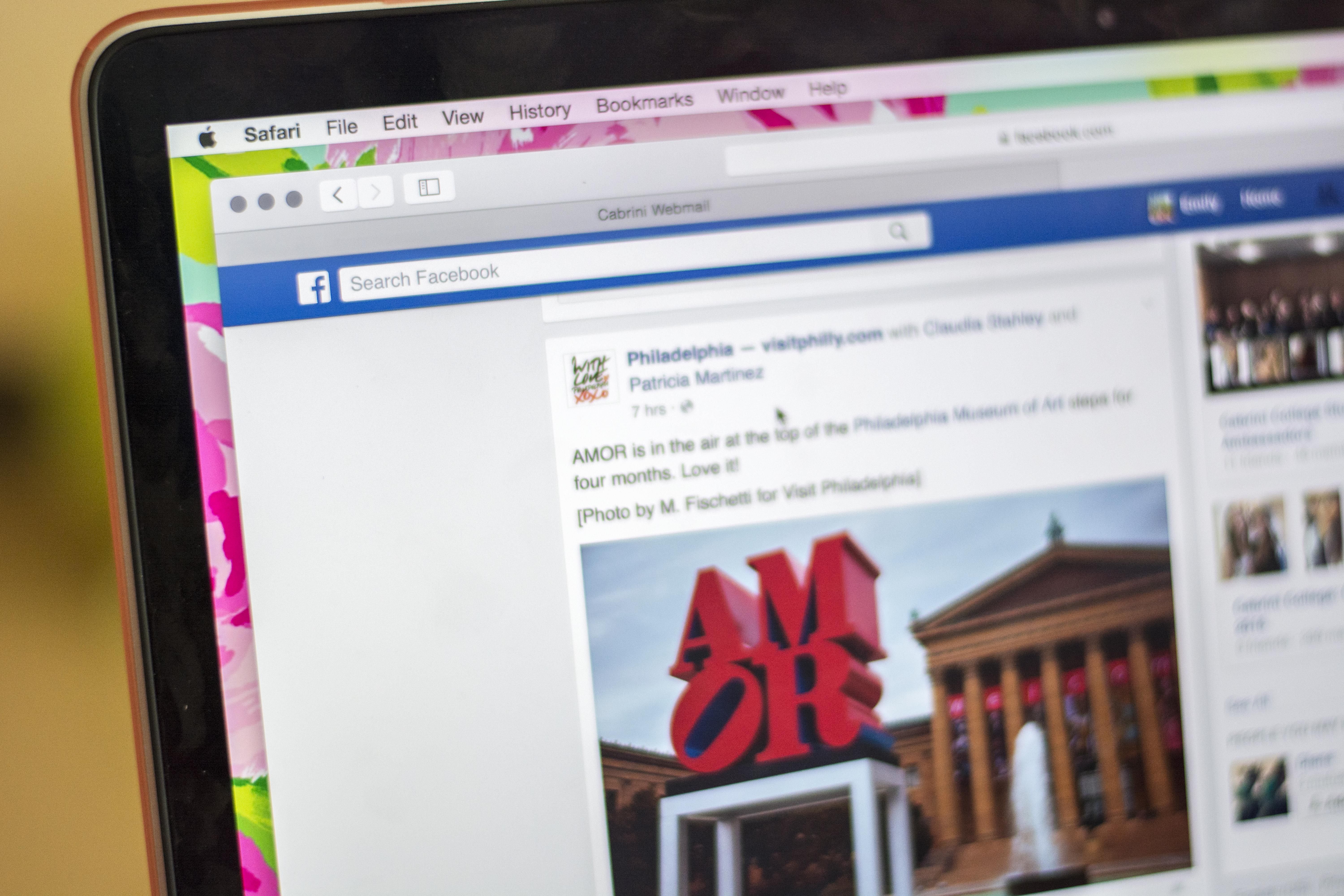
More than 90 percent of students surveyed by the Pew Research Center this year have reported going online daily and 24 percent reported being online almost constantly.
Social media seems to be taking over students’ lives. Facebook, Instagram, Snapchat and Twitter are among the top social media sites students are interacting with, according to the Pew Research Center.
With more and more social media sites being introduced over the past few years, many students are feeling the need to be active on multiple platforms. Posting on social media is a way to show the world what you are doing.
Cortney Hanson, junior eduction major, feels that social media defi- nitely impacts her social life and life in general. Hanson said, “do it for the gram” is a widely popular saying that so many people, including herself, are influenced by.
In today’s society, many people are affected by social media to the point that they will act certain ways and do crazy things just to have something interesting to post on Instagram and other social media sites.
“Individuals use social media to make it look like they have a better life than other people and they use it to try to convince others that they have fun lives,” Hanson said.
Social media has become an indirect way for people to flaunt and brag about their lives to others.
MaryKate Sapata, freshman early childhood and special education major, is another college student who feels that she has to post on social media to make it look like she has a social life. She estimates that she spends about five hours a day interacting with social media.

Having access to a smartphone is allowing many people constant access to their social media accounts.
Yamura Gabriel, a freshman biology major, said she also spends, “a good amount of time” on social media and the amount of likes she gets does affect her a little bit.
Students feel that “likes” on their posts do make an impact. When they get a lot of likes it often boosts their self-confidence.
Dr. Felicity Duncan, a professor who teaches social media courses on campus, feels differently than students on the idea that you have to post on social media to make it look like you have a social life.
She enjoys being active on social media, but she definitely does not feel that she has to post to prove anything. Duncan spends a couple of hours throughout her day on social media but not to make posts to try and boost her self-confidence.
“When you are older, the sources of your self-confidence are not your peer network but instead your achievements and your lifestyle,” Duncan said. “With younger people it [social media] affects their self- confidence,” that is where the difference in age comes in.
Students often feel that social media is a way to prove to people that they live great lives and that they feel that they need “likes” from their peers for that validation. Adults are usually more confident in themselves and are not looking for validation from others.
Duncan believes that one of the ways social media affects people, especially students is that, “the time they spend doing that [on social media] is time they don’t spend doing other things in their life such as homework or sports, which is unfortunate,” she said. “You’re not going to look back and say if only I spent more time on Facebook.”



